Better To Break The Law Than Break The Poor
Last night a plaque was unveiled at the Casa in Liverpool to commemorate the 47 Liverpool Labour Councillors who stood up to the austerity policies of the Thatcher government. In the 1980s the Tory government cut local government expenditure across the UK. Councillors in Liverpool refused to implement the cuts and instead improved the lives of the people of Liverpool by building thousands of council homes and creating jobs.
The Council created parks, demolished slums and established nurseries. This happened at a time when the city was in the grip of economic depression with youth unemployment as high as 90% in some areas. The government initiated a policy of “managed decline” for Liverpool. Despite this there was widespread discussion in the city about what to do to defend it. The District Labour Party, with the participation of delegates from Trade Unions. youth and community organisations and Liverpool MPs decided to resist the government and defend the people of Liverpool.
The 47 councillors recognised the response of councillors in Poplar (now the London borough of Tower Hamlets) in 1921 to a similar situation. Poplar was faced with the prospect of a huge increase in the rates but decided to hold them down by not collecting the precepts. The councillors clashed with a decision of the High Court ordering them to implement the rate increases. Instead they organised a procession of thousands of supporters under the banner reading “Poplar Borough Council marching to the High Court and possibly to prison”. Thirty councillors, including six women were sent to prison for contempt of court. Under the leadership of George Lansbury the councillors adopted the slogan “Better to break the law than break the poor”.
The 47 embraced the same slogan for their struggle. The Poplar revolt received wide public support. Lansbury addressed crowds that regularly gathered outside, through the prison bars. Neighbouring councils threatened to take similar action. Trade unions passed resolutions of support and collected funds for the councillors’ families. After six weeks’ imprisonment, the court responded to public opinion and released the councillors.
Ken Loach sent the following message which was read out last night:
I am very sorry not to be with you to pay tribute to the Liverpool councillors who refused to bow down before the Tories or the Labour right wing.
The councillors understood two principles:
First this society is based on class conflict – the inevitable and irreconcilable struggle between the working class and those who control what we produce and the economic circumstances of our lives, the ruling class.
Second, the independent interests of the working class are non negotiable. A job that pays a proper wage, a secure home, care when sick or old, an education that develops critical citizens, a protected environment and a peaceful world. Harsh competition by private corporations demands that these needs are ignored. The exploitation of labour and the earth’s resources will always come second to the need to make a profit.
We should remember this when we remember the ‘47’.
We have made advances in the struggle against the Labour right. We have the possibility of a Labour government that will begin to reassert these independent interests. But to make this possibility a reality, we have to strengthen and protect Jeremy Corbyn’s and John McDonnell’s leadership and collectively develop their programme.
The immediate task is to elect a new generation of Labour MPs, who understand the reality of the struggle they face. There is no place for those whose main aim is to undermine Corbyn and McDonnell. Foul-mouthed slanders, calling the Party a ‘sewer’ or members ‘dogs’ must mean that those MPs who use that abuse are removed.
We can achieve nothing while these are our representatives. To transform our society we must continue to transform the Labour Party.
A good beginning is to learn from the ‘47’!
Solidarity!
Ken
Jimmy McGovern was one of nine children born to working class Liverpool born parents, William McGovern and Jane Warner. A life long socialist Jimmy told me how he witnessed the lives of people change as they were moved from cockroach infested slums into new houses built by Liverpool City Council.
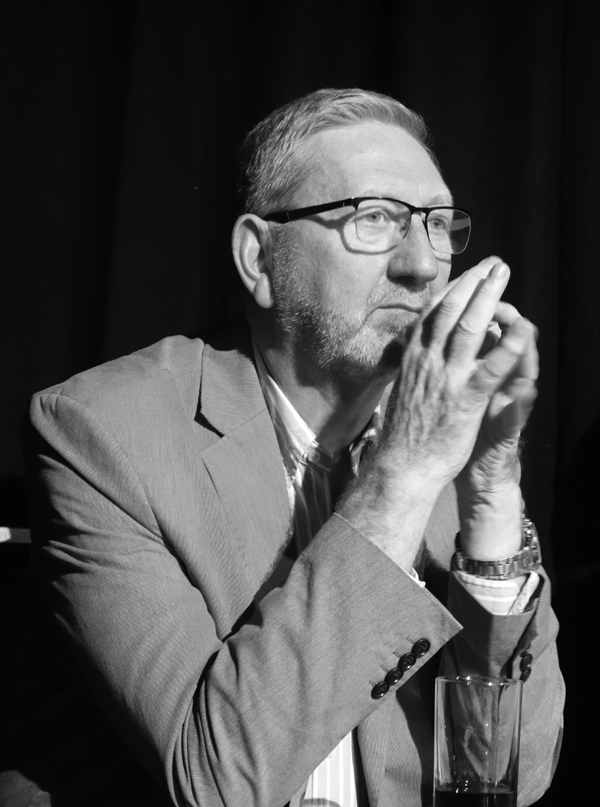
Len McCluskey listening to Tony Mulhearn describing the attacks made on the 47 by the press and the leader of the Labour Party Neil Kinnock.
Born in north Liverpool Len McCluskey was named after his father who was a painter-decorator. His mother Peggy inspired him politically. A supporter of Jeremy Corbyn he told me that the attacks on Corbyn reminded him of the attacks Liverpool City Council faced in the 1980s.

Niel Kinnock attacked Liverpool City Council at the 1985 Labour Party conference. Liverpool MP and NEC member Eric Heffer walked off the platform and out of the conference when Kinnock made the attack. He is photographed here shortly before he led the Labour Party to its second electoral defeat under his leadership.
Tony Mulhearn was brought up in the down town Fontenoy Street and Leeds Street area of Liverpool. He joined the Labour Party in 1963 and played a key role in the leadership of the council. He was expelled from the Party following the decision by unelected Law Lords to remove the 47 from office in 1987. He is still campaigning and has recently been involved in supporting RMT members, McDonalds workers and cleaning staff fighting for better conditions at the Royal Liverpool Hospital.
People travelled from all over the UK for the unveiling of the plaque. Betty and Anne were founder members of ‘Women Against Pit Closures’. I interveiewed them for the next film I’m making with Hazuan Hashim “Better To break the Law than break the poor”. Betty told me how her leg was fractured by a police baton as she was standing peacefully on a picket line during the miners strike. The film will examine the struggle of the Poplar and Clay Cross councillors, the 47, the Orgreave Justice Campaign, justice for the Cammell Laird strikers, and the Poll Tax rebellion. It will be launched in 2020.
There was standing room only for the unveiling of the plaque. The audience was swelled by scores of delegates and visitors to the Labour Party conference in Liverpool.
After the plaque was unveiled the 47 councillors and their partners assembled on the stage for photographs.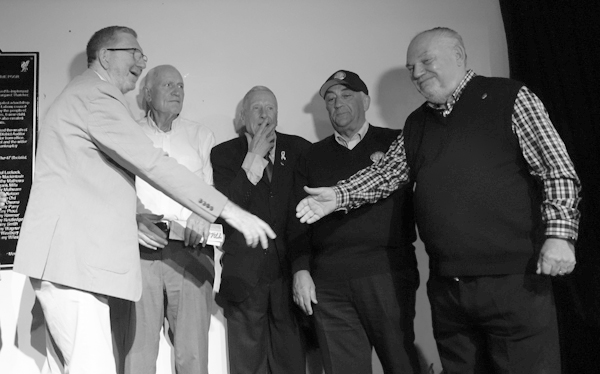
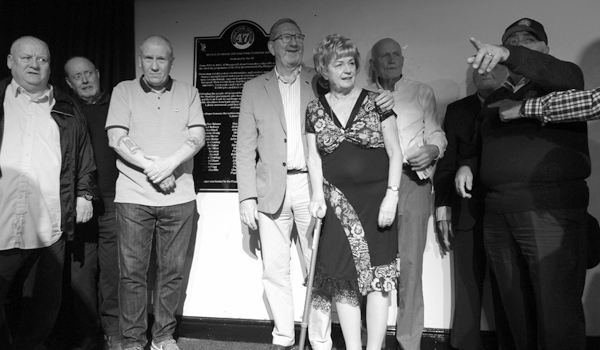


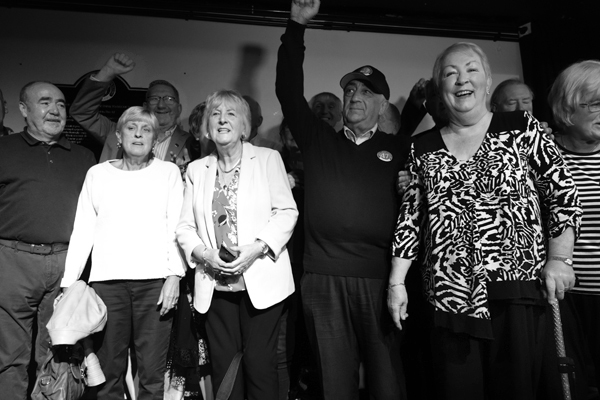
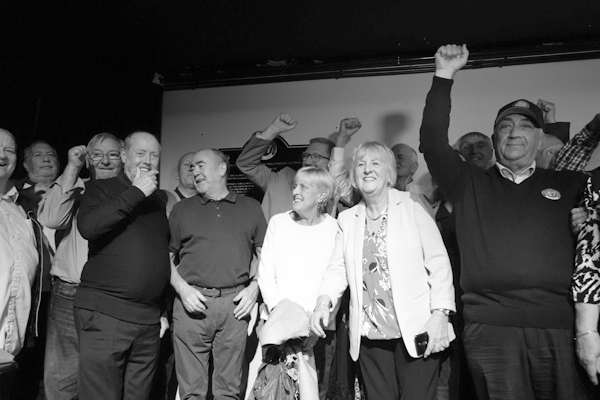
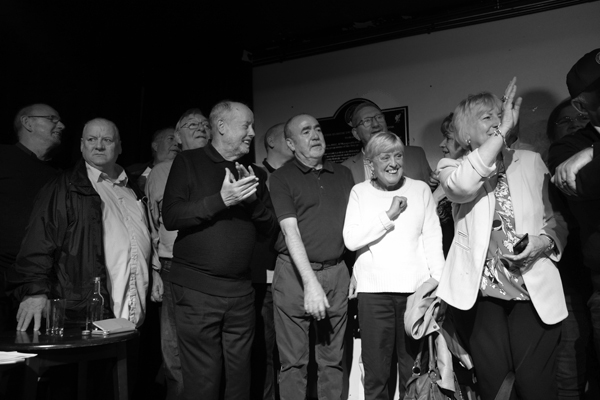
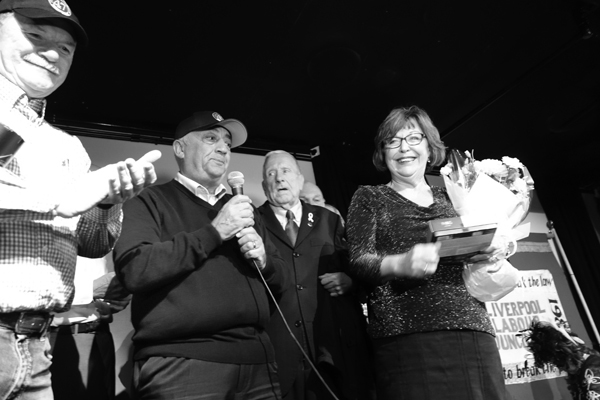
You may also like:
On Strike On International Women’s Day
Pensioners Fight To Save The Liverpool Women’s Hospital
Merseyside Pensioners Back Corbyn
Keep The Guards On The Trains!
from → Historic, Liverpool, Protest, United Kingdom, urban




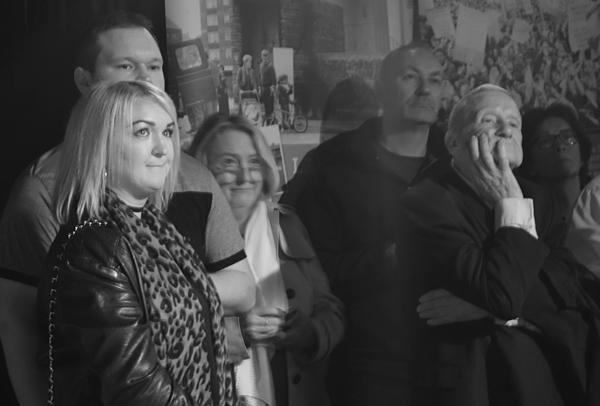

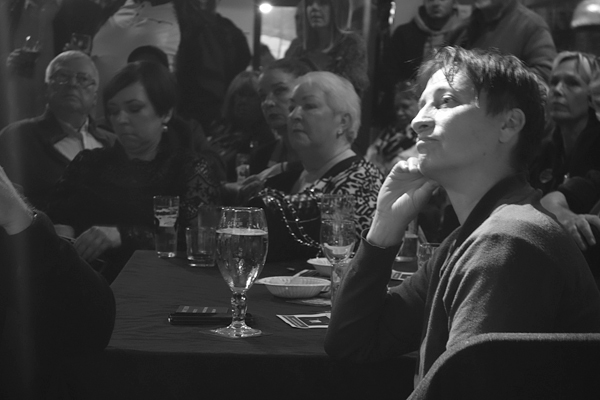

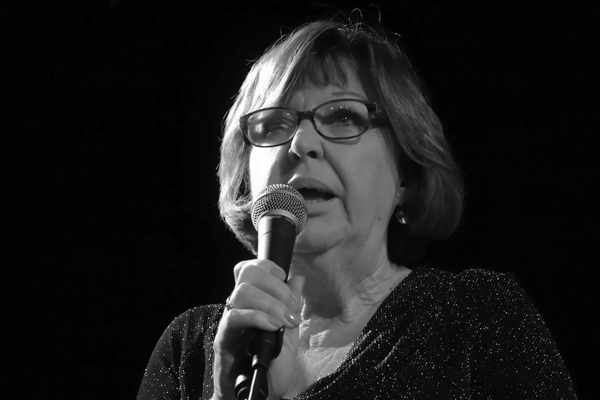
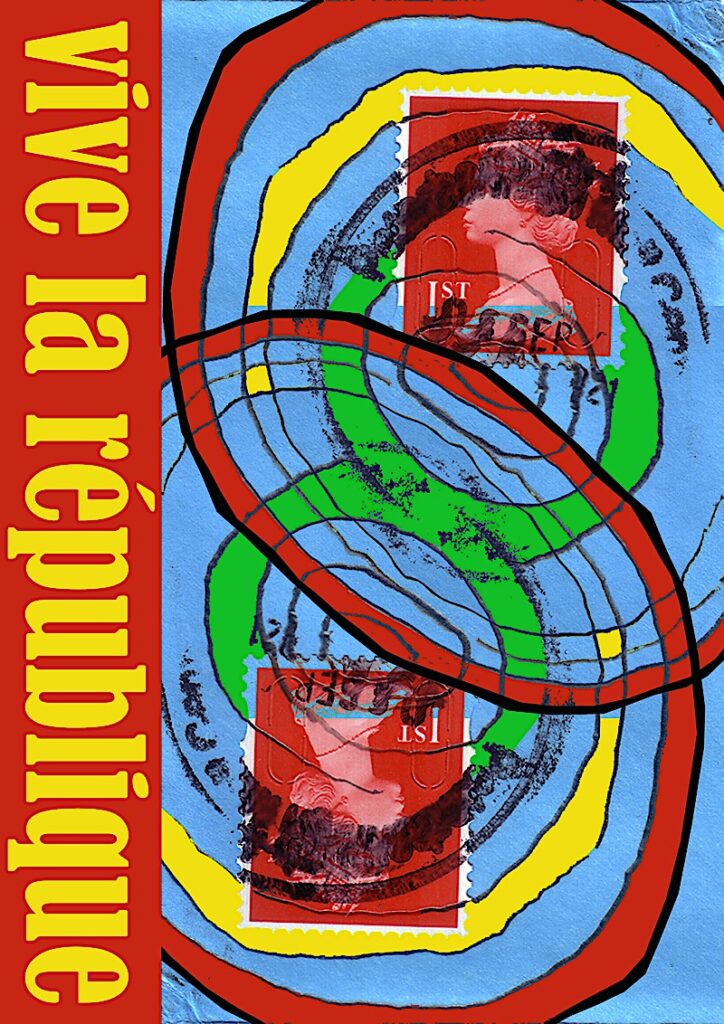
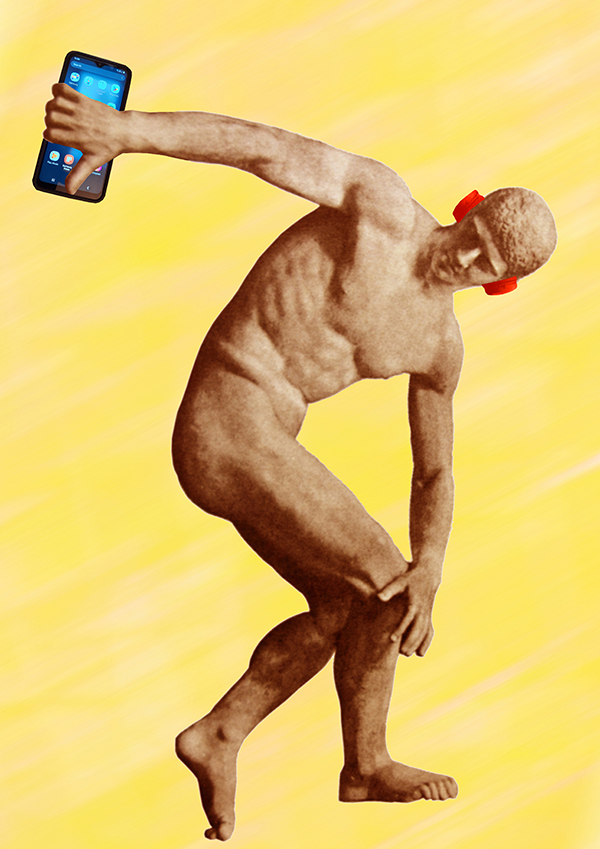

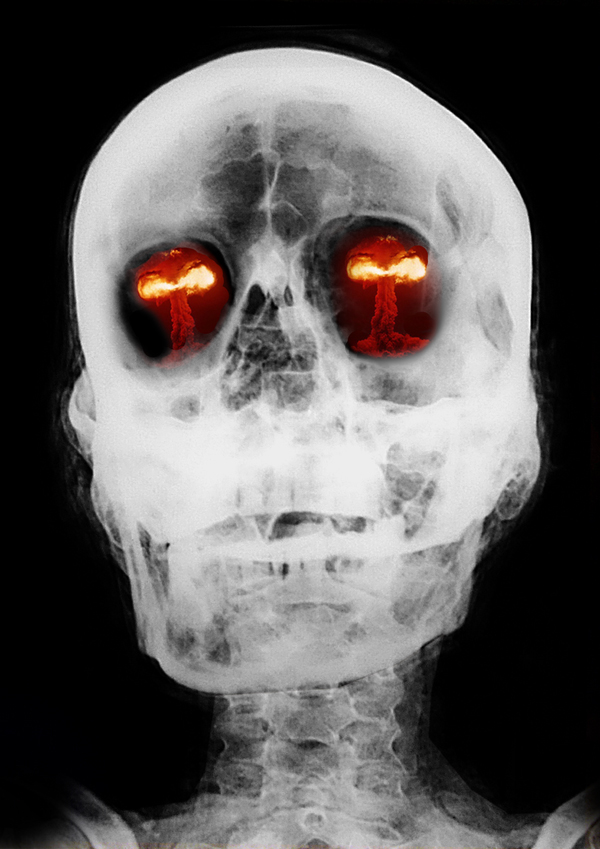


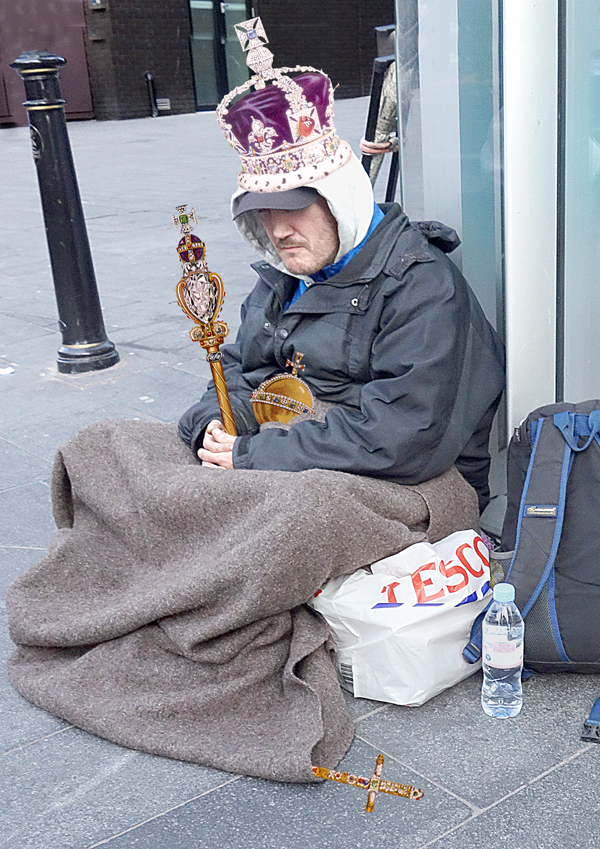

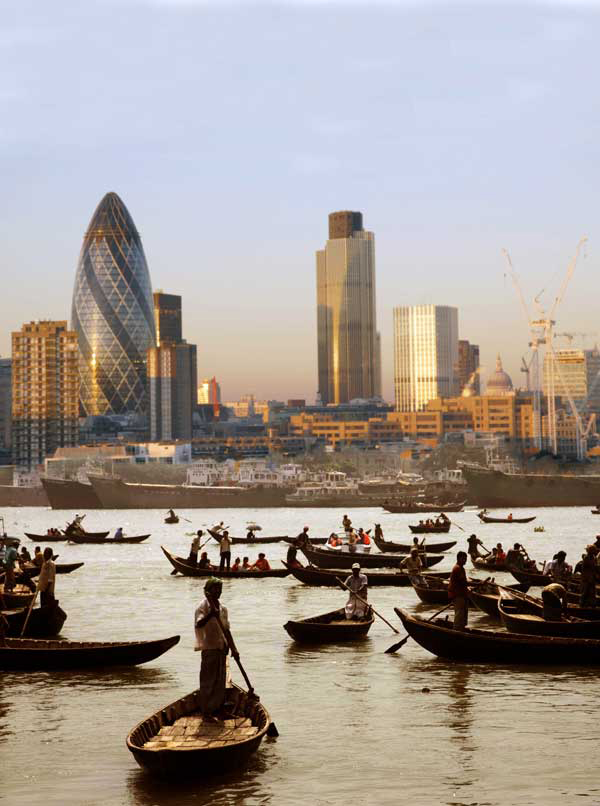
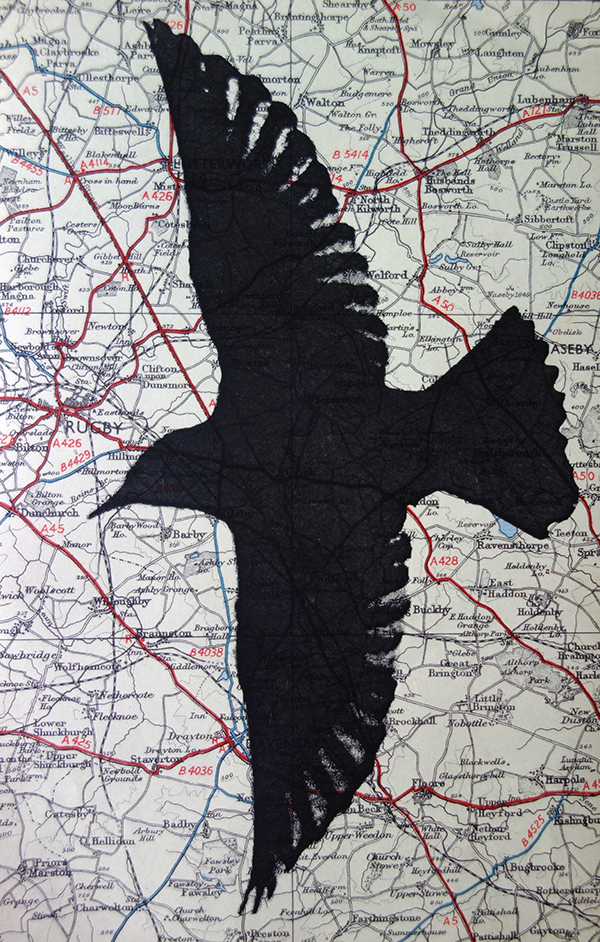

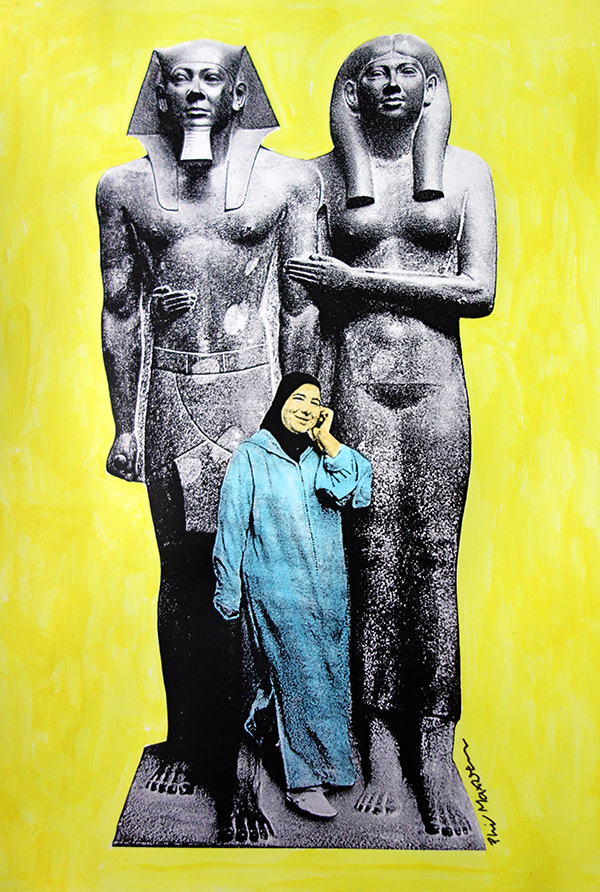
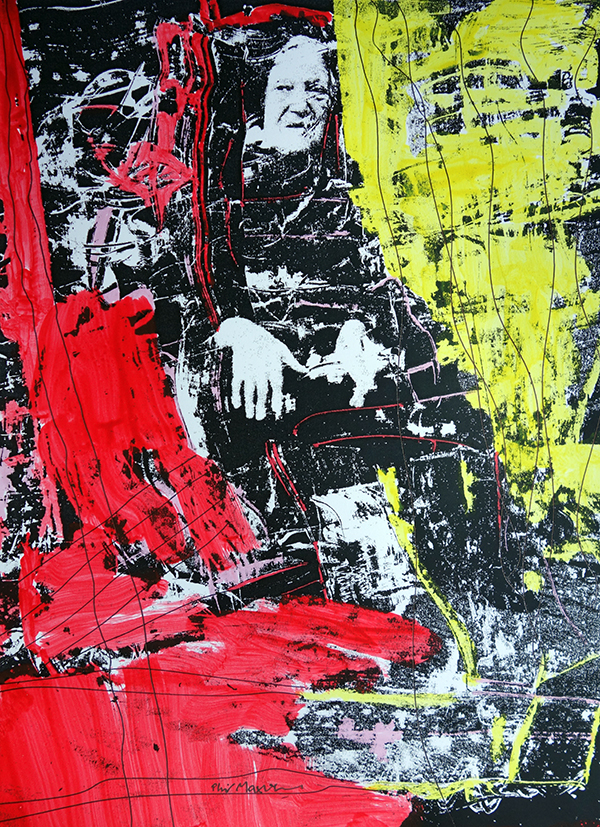

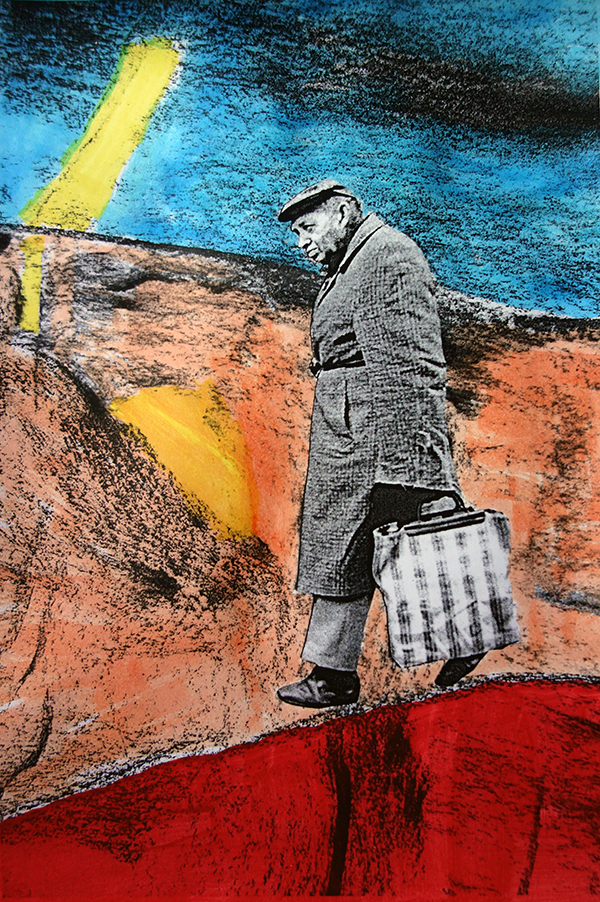
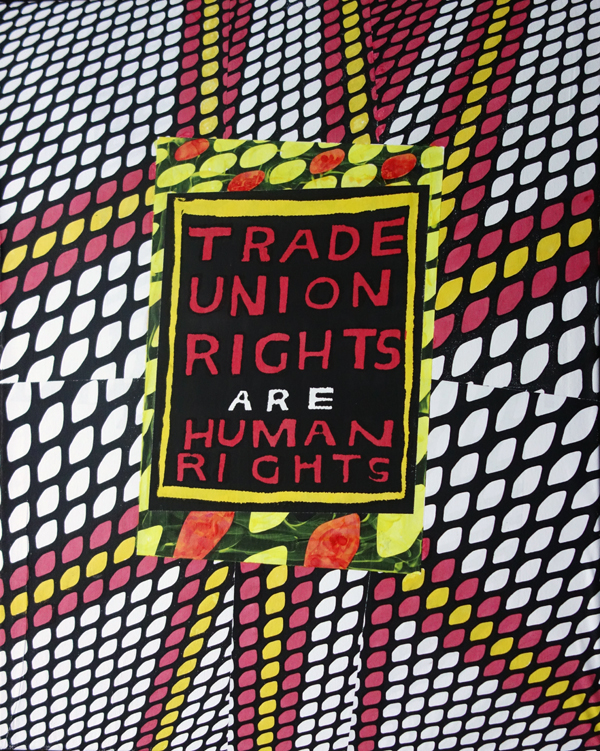
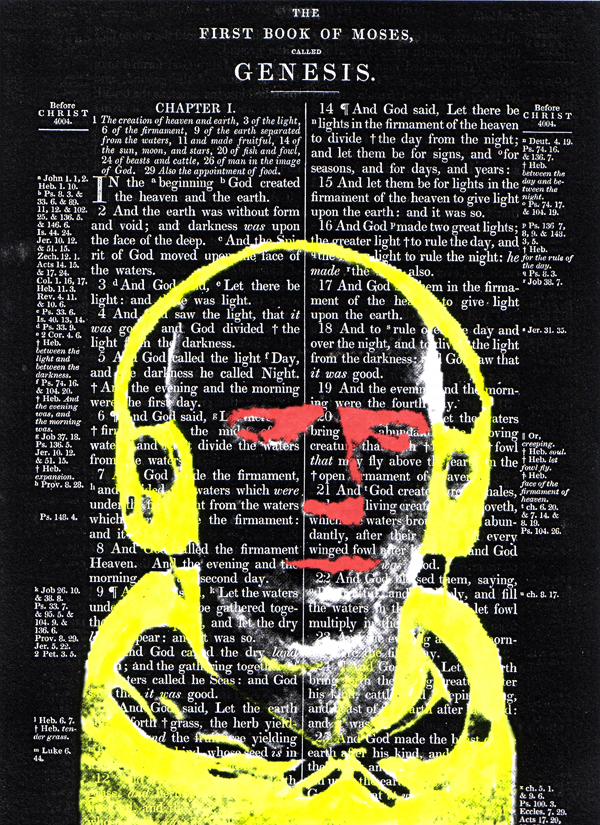
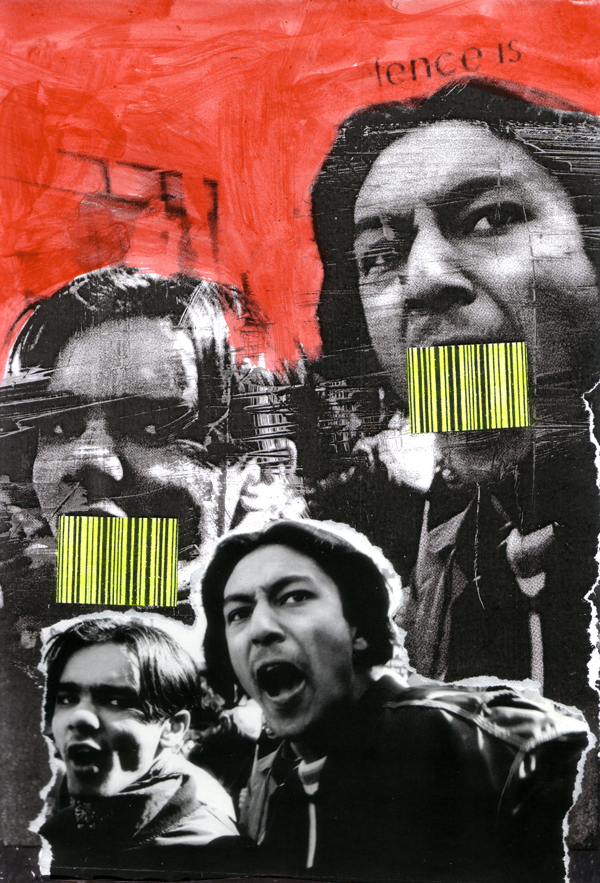
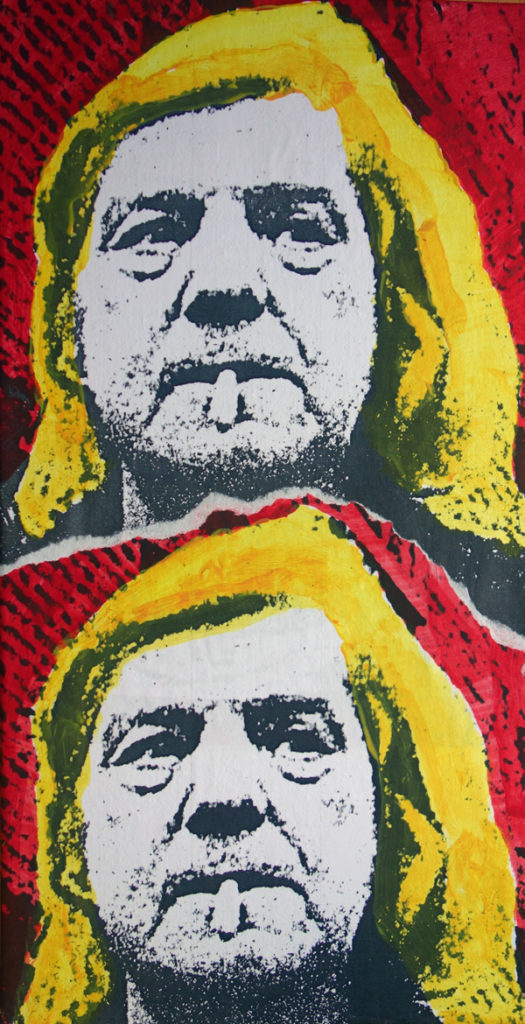
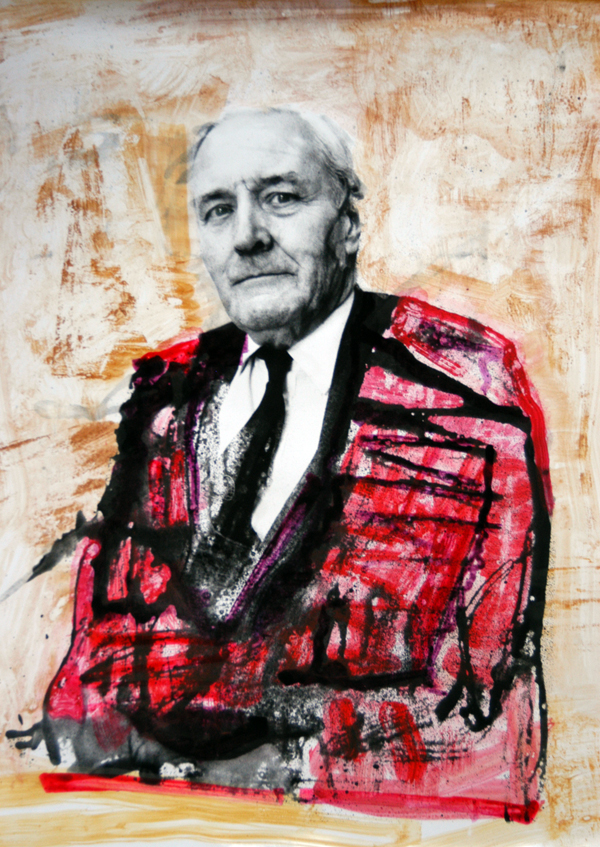

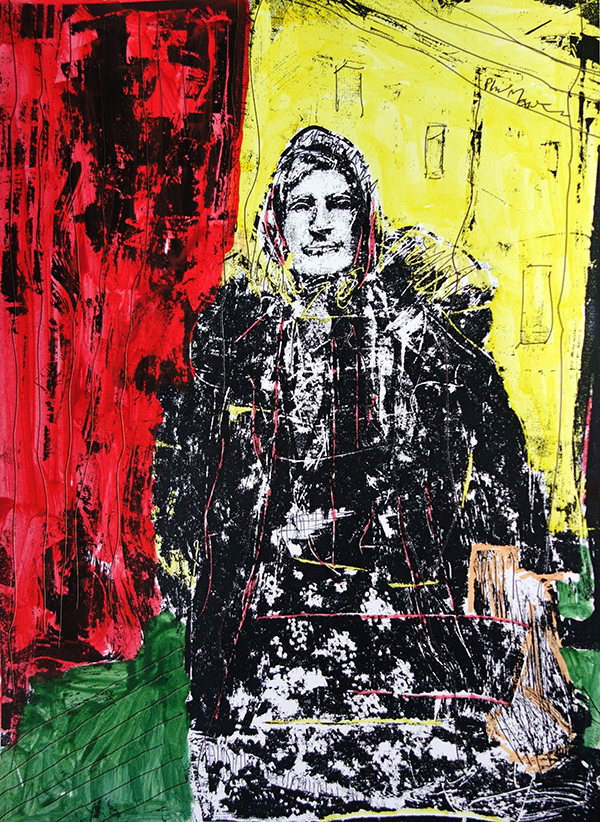
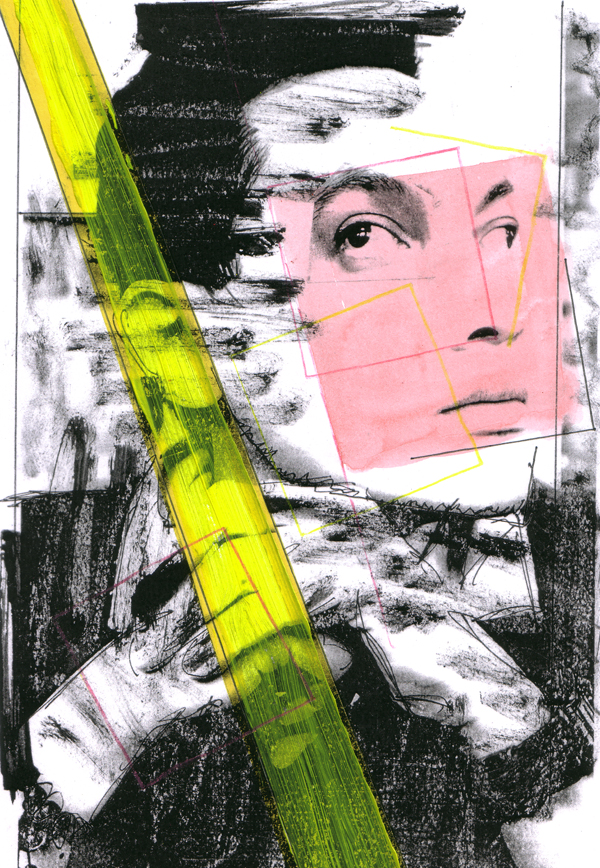
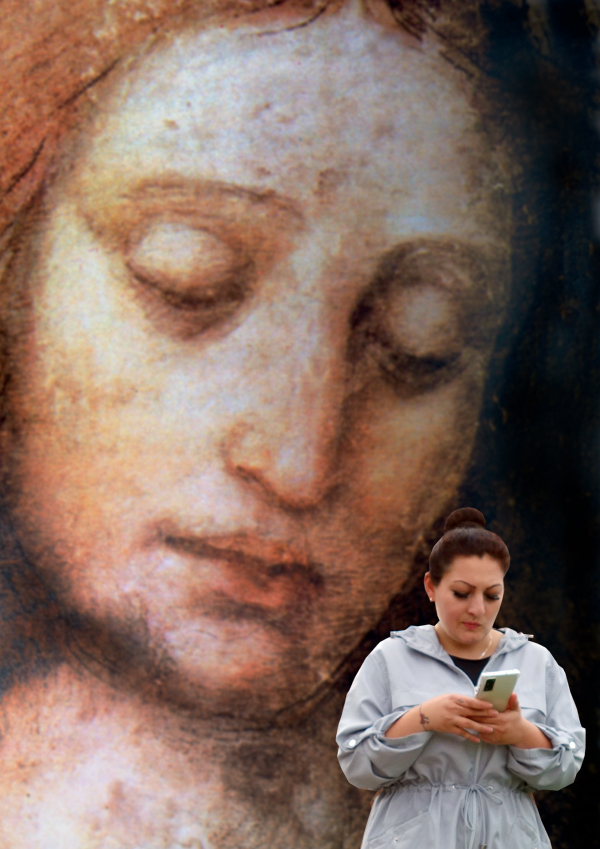

Thank you for this brief history. More people should know the real story which was one of political and personal courage.